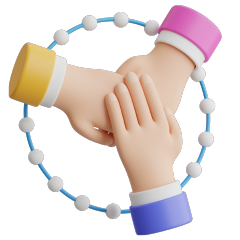Why are care notes so important?

Care notes are also known as shift notes, daily notes or progress notes. Support workers create these essential written documents at the end of their shift to report any positive or negative events in relation to the client. Let’s discuss why care notes are so important. We will also share some quick tips on the […]
Care notes are also known as shift notes, daily notes or progress notes. Support workers create these essential written documents at the end of their shift to report any positive or negative events in relation to the client.
Let’s discuss why care notes are so important. We will also share some quick tips on the best way to write them!
Table of Contents
Proof of service delivery
If you are employed as a support worker for Leora, care notes are an important part of completing your service. Documenting what you did during your shift helps the client’s family members and other reviewers see if you have provided the agreed-upon services.

A record of client’s progress
Care notes also help the wider Leora care team monitor the client’s progress and continuously improve our services.
As a record of a client’s status and achievements, care notes can be used to check if the client’s needs are being fulfilled and if they are on track to achieving their goals.
Negative incidents, such as physical injury or property damage, should also be included. This helps the care team identify, investigate and resolve problems to keep both our carers and clients safe.
Legal document and evidence
Care notes are legal documents that can be used as evidence. For example, if the client is an NDIS participant, they can use the care notes in plan reassessment meetings to support their requests for more funding or a change in services.
Reports from healthcare professionals may be required as documentation in these meetings, and notes can also be provided to the client’s allied health team. Psychologists, occupational therapists and other allied health professionals can use the notes to assess the client’s progression and enhance their life skills.
Care notes can also be used as evidence for insurance claims and any adverse incident reported to regulatory bodies, such as the NDIS Commission or aged care decision-makers.
Some quick tips on writing care notes
1. Keep it objective and professional.
When you write your care notes, it’s best to include facts and observations, and not have it be influenced by personal feelings or opinions.
Here is an example of subjective writing that you should avoid.
(Example from the National Disability Service workbook.)
Marcella must have bumped into something when she went on a walk to Albert Street Park, as she has grazed skin and a bruise on her arm. She was holding her arm and looked unhappy.
This example is subjective because the author of the note is injecting their own speculation into what caused the client’s injury (“must have bumped into something”). It’s best to write down your own observation, and include first-hand reports from witnesses, who in this case would be Marcella herself!
Here’s the objective rewrite:
At 3.30 pm Marcella returned from a walk to Albert Street Park and she was holding her right arm against her body. I noticed that she had a graze and bruise on her right arm. Marcella said a dog had jumped on her when she was sitting on the grass at the park. She said she had been frightened and that her arm was sore.
2. Be accurate and specific
e.g. write “At 4pm, Ryan had a temperature reading of 38 degrees” and not “Ryan’s forehead felt a bit warm to the touch.”
3. Use active voice
putting emphasis on the doer of the action so you don’t omit important information. For example, write “At 1pm today, Jordan found Mrs. Smith on the floor”, and not “At 1 pm today, Mrs Smith was found on the floor.” (Who found her?)
4. Keep it short and concise.
Yup.
Become a Support Worker for Leora
Are you ready to provide support? If you would like to apply as a carer or support worker for Leora, visit our page. Our friendly recruitment team will guide you every step of the way!





